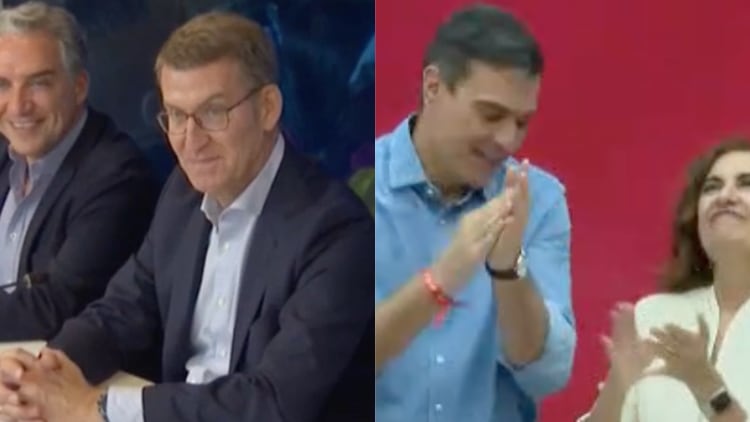Ángel Collado
The panorama of uncertainty and the threat of political deadlock is confirmed by the first movements of the parties after the PP’s short-lived victory and the resistance to attrition demonstrated by Pedro Sánchez. Alberto Núñez Feijóo is opening talks with all the right-wing groups, Vox plus nationalists and local regionalists, although he does not have the numbers to form a government.
The president of the government is gaining time while waiting for his opponent, the most voted in the elections, to fail. Meanwhile, Carles Puigdemont, the former president of the Generalitat of Catalonia, on the run from justice since 2017 after leading the secessionist attempt of 1 October of that year, boasts that he holds the key to Sánchez remaining in power after losing the elections.
The price of the separatists grouped in Puigdemont’s formation, with 7 deputies in Congress, rises: a referendum of self-determination to end the unity of Spain and the constitutional regime and judicial impunity for their boss still pending a possible search and arrest warrant for embezzlement of public funds.
Although Sánchez has already changed the Penal Code to eliminate the crime of sedition that the separatist leader had committed and cannot be prosecuted for that reason, his party is now demanding an amnesty law and a binding referendum for self-determination in Catalonia. And neither of these two figures fits in the Constitution.
The acting chief executive, strengthened in the leadership of his party after holding back the right in the elections, assured the PSOE executive that he is in a position to include Puigdemont in some form of “governability” that guarantees the continuity in power of his left-wing front.
Sánchez faces the challenge of winning the support of all the separatist parties, not just ERC and Bildu as in the last legislature. Puigdemont’s bill is higher (or clearer) than that of Esquerra Republicana, whose main leaders, such as Oriol Junqueras, have already paid for their support for Sánchez by being pardoned by the government against the criteria of the Supreme Court.
Sumar, the new party that brings together the entire far left with Yolanda Díaz at its head and is a permanent partner of the PSOE, has anticipated Sánchez’s future efforts and has appointed one of its deputies, Jaume Asens, to negotiate Puigdemont’s endorsement of another future Sanchez cabinet.
For his part, Feijóo wanted to take the initiative as head of the most voted list for Congress on 23-J and with 136 MPs, and to comply with the usual procedure of gathering support among the formations closest to him ideologically, but also with the secretary general of the socialists in order to make it clear that because of him there will be no political deadlock in Spain.
Apart from Vox (33 seats), the PP president addressed the regionalists of Coalición Canaria and the foralists of Navarre, Unión del Pueblo Navarro, with one deputy each. The four of them add up to 171 MPs compared to the 172 of Sánchez’s bloc of leftists and pro-independence supporters if the five of the Basque Nationalist Party are included.
The PNV, which in previous legislatures made pacts with the popular governments of José María Aznar and Mariano Rajoy, has ruled out for the moment entering into any alternative right-wing formula for another left-wing cabinet due to the presence of Vox in the equation. And Santiago Abascal, in turn, wants nothing to do with the Basque nationalists either.
Sánchez is now waiting to see whether Feijóo will launch himself into an investiture without sufficient support in Congress, or whether he will give it up from the outset, and then take the initiative once the PP president fails. In the meantime, he will have time to study how to please Puigdemont, if only so that his deputies abstain when Congress votes on his election.







